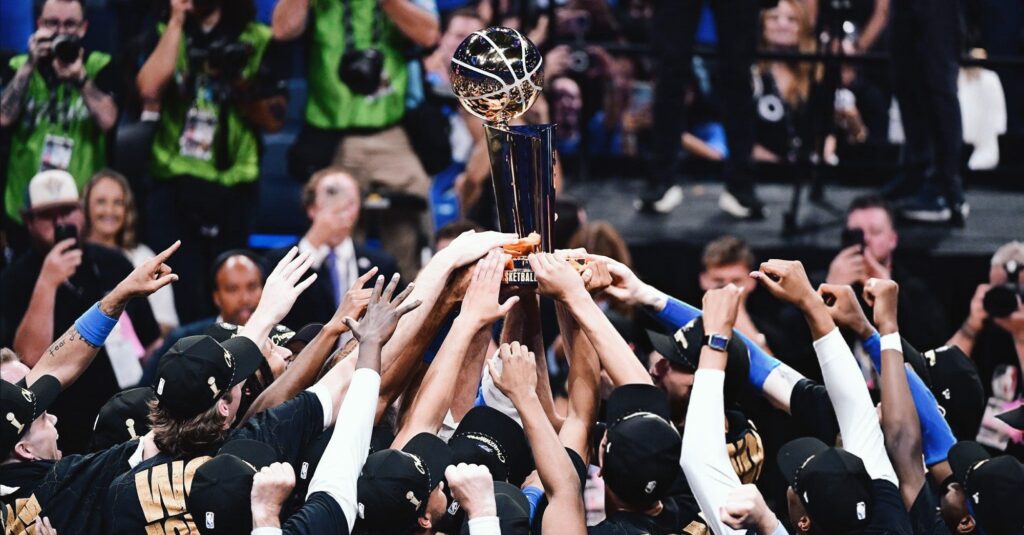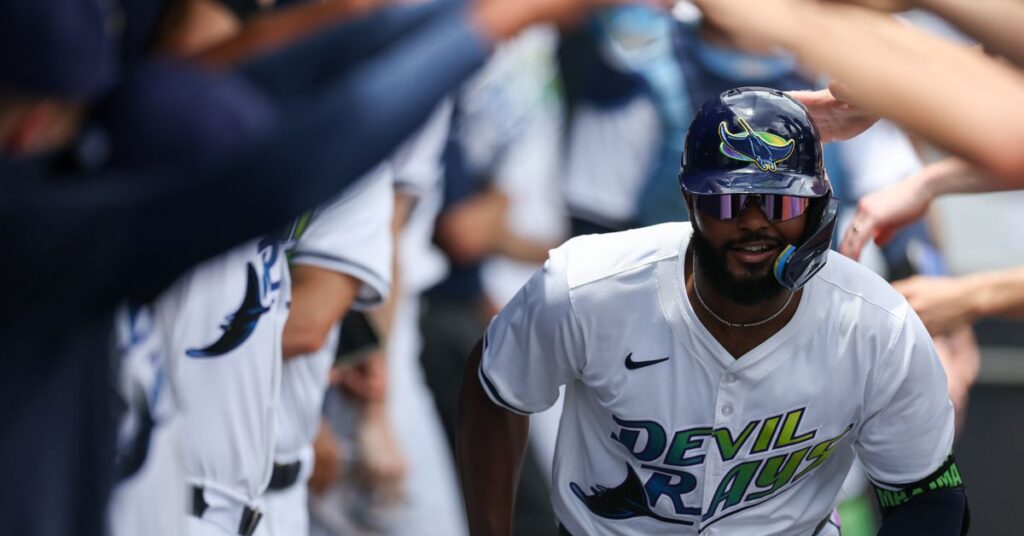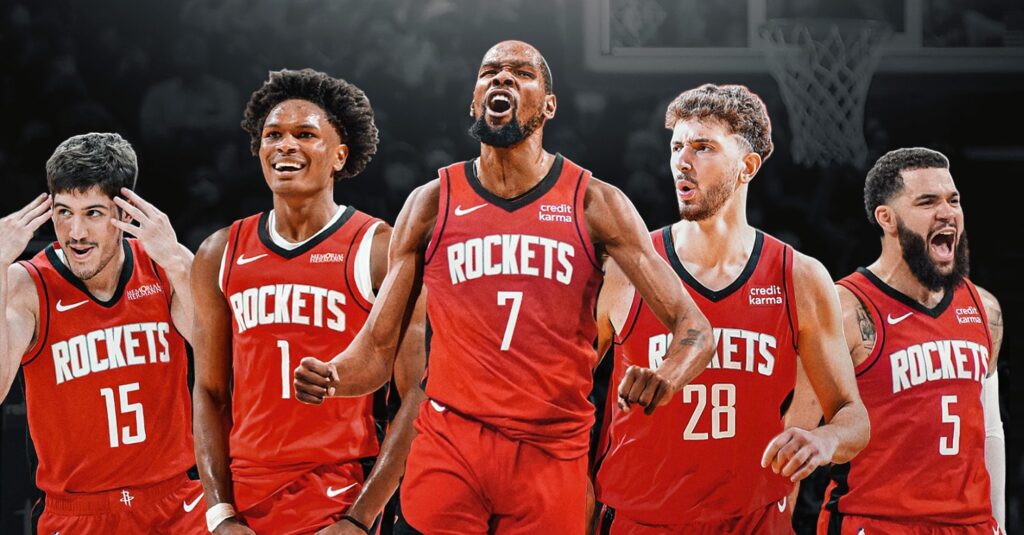WINSTON-SALEM, N.C. — Johnetta Forbes never said no to breakfast.
Eggs, sausage, pancakes. A fresh pot of coffee. “Usually,” her son, Chris, says, “she’s all for it.” Which made it strange, when she woke up the morning of Aug. 8 at the Forbes family condo in Destin, Fla., and … declined everything. “I was like, oh, you must be sick,” Chris says.
Chris didn’t think too much of it. He and his older sister, Liz, left for the gym; Johnetta stayed behind with her youngest son, Johnathon, and planned to go back to bed. She’d slept badly — woken up in the middle of the night, disoriented, disturbed by some loud noise.
Halfway to the gym, Chris got a call from Johnathon.
“I need you guys to turn around.”
Concerned, Johnathon had called a friend’s dad, an orthopedic surgeon, and put his mom on the phone. She told him about the loud noise. About how the left side of her body was starting to feel heavy. Hang up, the surgeon said, and go to the emergency room.
Chris and Liz picked up Johnathon and Johnetta and drove to the hospital in Miramar Beach. Johnetta walked in on her own. But almost immediately after checking in, she got sick. Really sick. Throwing up endlessly, on a constant back-and-forth from the bathroom. Doctors didn’t have the equipment to fully diagnose her, but they’d seen enough. “This could be something serious,” they told the family. “We want to get her to Pensacola.”
Medics loaded Johnetta into an ambulance for the 90-minute drive. Eventually, a CT scan came back with results.
Johnetta’s husband, Wake Forest coach Steve Forbes, was at Camp Arifjan in Kuwait during all this. He was taking part in Operation Hardwood, a program in which college basketball coaches run tournaments on U.S. military bases. When Steve saw Liz calling, it was roughly 11 p.m. his time, and he was on a bus to a Taco Bell. Figuring it was a pocket dial, he sent Liz to voicemail. She texted right back: Dad, you need to answer the phone.
He picked up this time.
“Mom had a stroke.”
On Wednesday, Steve’s Demon Deacons (19-12) open ACC tournament play against Notre Dame as one of the bubbliest teams in NCAA Tournament consideration. They need to beat the Fighting Irish, and then some, to make the field for the first time in Steve’s four years in Winston-Salem and for the program’s first appearance since 2017.
The season has been bumpy, with wins over Duke, Florida, Virginia and Clemson … but also a recent three-game losing streak.
“There has to be some humility with people, when you understand what we are actually going through,” Steve says. “We’re not robots.”
After Steve got the call from Liz, he got on the soonest flight out of Kuwait, connecting through Frankfurt, Germany, landing in Washington, D.C. and taking Wake Forest donor Mit Shah’s private plane to Pensacola. He made it to the hospital around 8 p.m. on Aug. 10, two full days after Johnetta had been admitted. “I didn’t know what to expect,” Steve says. “I walked into that hospital room, and then I knew.” The updates from his kids were one thing. But seeing his wife like this in person? Hooked up to all those machines, facial droop on her left side. Unable to move. “Then it just kind of …” Steve says, his voice trailing off. “Just kind of hit me.”
He and Johnetta have been together 37 years, since they were students at Southern Arkansas University. They met when both attended a football game in nearby Shreveport, La. After talking at a bar beforehand, they decided to skip the game and hang out instead.
They got married the following July.
Liz was born about a year later, and the family has followed Steve around the country while he climbed the coaching ladder. Johnetta — an elementary school reading teacher — eventually told Steve to focus on his career … and she’d take care of the family.
Bills. Laundry. Meals. The house. Everything.
And now here she lay in a hospital bed. His caretaker, truthfully, for the last several decades. The first time Steve spoke to doctors, they told him it could take three years for her to recover. Johnetta had been perfectly healthy and an active swimmer. He couldn’t understand why.
But Johnetta had suffered an occlusion, a blockage that broke off in her vertebral artery and prevented blood from going to her brain. Doctors told the family that with stroke victims, the first 48 hours are the most important — because more can occur.
“I felt bad because I wasn’t there as a husband — and a father for my children,” Forbes said. “They had to experience that whole thing on their own, and I wasn’t there for them. You do a lot of soul-searching.”
Steve Forbes is trying to lead Wake Forest to the school’s first NCAA Tournament since 2017. (Justin Berl / Getty Images)
The milestones were miniscule. But still milestones.
Johnetta wiggling her fingers. Her toes. One day, flipping her hand over. The first day she woke up, she managed a word through slurred speech: Mail.
“She was worried about the mail not being canceled back here, because we were going to have to stay there longer,” Chris says, laughing. “I said, Mom, are you f—- serious?”
Steve had to figure out next steps. He initially considered bringing Johnetta back to Winston-Salem, to Wake Forest’s world-class medical facilities, but their insurance company wanted her somewhere closer to Pensacola. They settled on Atlanta’s Shepherd Center, which specializes in neurorehabilitation. Former Wake Forest basketball star Rodney Rogers spent time there after a dirt bike accident left him paralyzed from the shoulders down.
Once she was admitted there, other than two quick recruiting trips — once to Charlotte, once to Overtime Elite, located down the street in Atlanta — Steve didn’t leave her side for a month.
“I was trying to help my wife … and then be the basketball coach at Wake Forest,” he says, “and I ain’t gonna lie: it was overwhelming at first.”
Steve’s assistant coaches — B.J. McKie, Jason Shay, Matt Woodley, Antanas Kavaliauskas and Demetrius Nichols — told him to focus on his wife. They would make all the necessary phone calls and assume larger roles running practice. Steve still received practice notes and videos, still communicated with his players as best he could. But physically and emotionally, he was with Johnetta. During one of her first days at the Shepherd Center, doctors asked Steve about switching her blood pressure medication. “I said, well, let me ask you a question: if you came to practice, you think I’d ask you how to run practice? No,” Steve says, laughing. “I mean, if that’s what you want to do, do it. You want me to Google it? I’m not gonna ask you how to defend a ball screen.”
Rehab was intensive: five days a week, sunup to sundown. Johnetta would get wheeled into the therapy gym to go through a gauntlet of movements. She progressed to an exoskeleton treadmill, and a zero-gravity contraption that functioned like an adult baby bouncer; Johnetta would be strapped in, while a team moved her extremities to mimic walking.
“It’s not that she was walking,” Chris says. “It was showing her that her body could … Showing her brain, to remember how to do it.”
She quickly graduated through speech therapy, too — even if she does, as her family says, now overpronounce certain words.
But it wasn’t unfettered progress.
When Johnetta first got confident enough in her speech to answer the phone, she took calls over speaker. But one day, she took a call and pressed the phone against her right ear. She heard nothing. She’d permanently lost the hearing in her right ear; her cochlear nerve had been cut off from oxygen too long during the strokes. “That’s tough,” Chris says. “Of all the things to lose, though, I’m glad it’s that.”
Steve reckons he and Johnetta cried most days in the Shepherd Center, even as she was making great progress.
“The one thing about being in the profession that I’m in, we’ve always helped take care of people,” Steve says. “Now, somebody was trying to take care of us — and you’re not used to that.”
Chris, who is his father’s video coordinator at Wake, also organized Johnetta’s Caring Bridge page, posting regular updates for any family or friends who subscribed. But he quickly learned that more than just Johnetta’s inner circle was invested in her recovery. His mom received an entire box’s worth of letters from various college basketball fans, all wishing her a speedy recovery. Hey, I’m a Duke fan — but I’m thinking about you.
On Sept. 22, about a month after she arrived, Steve wheeled Johnetta through the front doors of the Shepherd Center wearing a pink BRAINS MATTER shirt. Johnetta stood up, a cane in her right hand, and slowly walked the few steps to the passenger seat. She was going home.
4 months ago today, 8/8/23, Johnetta suffered multiple strokes vacationing with our children in Destin, FL. She spent 42 days in the hospital, before returning home on 9/22/23. She is making remarkable progress. Today’s video: No cane, No walker, No wheelchair, No brace, No cast! pic.twitter.com/ENvgegZH1A
— Steve Forbes (@ForbesWakeHoops) December 8, 2023
The first thing Johnetta saw when she and Steve pulled back into their driveway in Winston-Salem?
A yard sign welcoming her home … and a makeshift wheelchair ramp that had been installed leading up to the front door.
“You leave and you think, OK, we can kind of get back to normal,” Chris says, “but it took us a couple days to really realize what this was going to be like.”
Steve had taken photos of the entire house while Johnetta was in the Shepherd Center, and the staff told him how to retrofit things before she returned. Taking out carpets. Adding commodes. Installing bars and a stool in the shower. Luckily, the Forbes have a newer house — Steve got the Wake Forest job in 2020, the only high-major coach hired amidst the COVID-19 pandemic — with wider doors and walkways. “You get to be my age,” Steve says, “when you buy a house as many times as I have, main-level master is non-negotiable.”
And all the household duties Johnetta usually handled? They suddenly fell to Steve. Paying bills, for instance — something he hadn’t done in decades. Making coffee in the morning. Loading the dishwasher. Doing laundry. “Stuff that, to be honest with you, I just took for granted for 35 years,” Steve says, “because she took care of it — and she took care of me.” The first time Steve washed clothes, he learned a valuable lesson.
“I put the bras in the dryer,” he says, laughing. “That wasn’t good.”
Plus, he was Johnetta’s de facto nurse now. Her first night home, she fell. Stood up out of her wheelchair too quickly. Steve and the kids knew what to do — the Shepherd Center staff taught them before they left — but suddenly being without the safety net of medical professionals was still jarring. “You don’t really quite understand that until it’s September 22nd at night and you’re like, oh, s—,” Steve says. “I’m in charge now.”
Bedtime proved toughest. That first night, when Johnetta needed to go to the bathroom, she had to wake Steve up. Then the process began: him removing her sleeping cast — which she had to wear so her left leg wouldn’t droop — picking her up out of bed, placing her in her wheelchair, putting on a different walking cast, actually wheeling her into the bathroom, and then doing it all over in reverse. Only 20 minutes, but enough that Steve couldn’t go back to sleep. After an “overwhelming” night or two like that, Steve knew he needed help. He asked Chris to move back in. So Chris and his fiancee — in the middle of planning their upcoming wedding, in August — moved into the basement. They’d stay for two full months.
Chris and Steve then traded nights sleeping in the same room as Johnetta. When Johnetta went to bed before him, Steve couldn’t help but peer in from the living room. “I’d go back and see if she was breathing,” he says. “Like your newborns, you go in and make sure.” Then he’d retire upstairs, to his office, to review practice and get a few uninterrupted hours of sleep. As the season drew nearer, Chris started taking more of those nights. “He’s got a whole program to run,” Chris says.
Over time, Johnetta progressed. She learned how to wheel herself into the laundry room, for instance, to help fold clothes. She started listening to audiobooks again, doing puzzles on the dining room table. She figured out how to dress herself with one arm. One morning, Steve woke up … and Johnetta proudly told him she’d gone to the bathroom in the middle of the night by herself.
All that improvement, done with one unwavering goal in mind:
“I just want,” she told Steve one day, “my boring life back.”
That motivation has also been Johnetta’s biggest source of frustration. “The hard part now is, she wants it back. She doesn’t want to have people constantly looking after her,” Steve says. “She wants her independence… and she just doesn’t have that yet.”
Johnetta still can’t drive. Doctors don’t know when, or if, she’ll ever be able to. She can go down the carpeted steps to the basement … with assistance. She still goes to physical and occupational therapy twice weekly. Steve has to help her shower, because the floor is too slick. A few people have come over to visit, but Johnetta understandably is still self-conscious. “The way she describes it is, it may not look like the disability on the outside,” Chris says, “but she feels like she’s disabled.”
What eats at Johnetta as much as anything?
She doesn’t feel connected to this year’s team.
“I’ve told her that’s not true,” Steve says, “but I get it.”
Most years, she’s the team mom. Baking her famous chocolate chip cookies, leaving them in players’ lockers. Telling Steve to be nicer to the boys. When Efton Reid, who played at LSU as a freshman, came on his recruiting visit, Johnetta — a Louisiana native — made homemade rotel. “Not too many people know about rotel,” Reid says. “I could tell she really knows what she’s doing.” But that was before the stroke. On the rare days Johnetta came to work with Steve this season, she usually stayed in his office watching TV. She attended her first few games while sitting in a box seat, both because of the noise and for her privacy. (Johnetta declined an interview request for this story.)
That she’s in Washington, D.C. this week to watch the team fight for an NCAA Tournament berth is a serious step in the right direction.
But the climb back to normalcy continues. It reminds Steve of a Rosalynn Carter quote he loves, one he discovered when the former First Lady died in November. He has it saved on his office computer:
There are four kinds of people in the world: those who have been caregivers; those who are currently caregivers; those who will be caregivers; and those who will need caregivers.
“Now, did you ever think about that before? No. And there’s so much truth to that,” he says. “Basketball’s important. It’s my job. But at the end of the day, I got a lot more going on than that, you know?”
(Illustration by Dan Goldfarb / The Athletic; Photos: Maddie Malhotra / Getty Images, and courtesy of the Forbes family)






